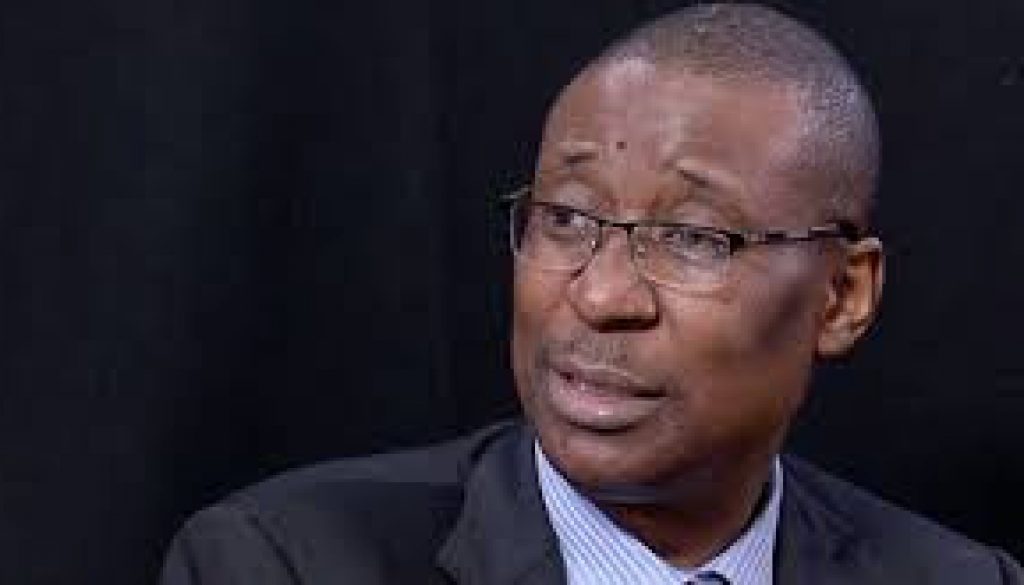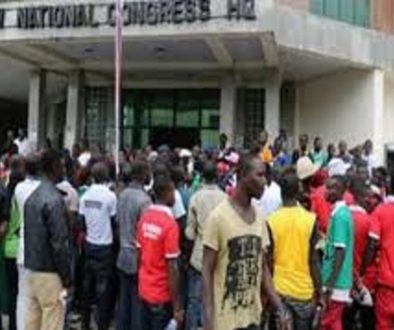Nigeria Industrial Council moves to improve operation of free trade zones
The Nigeria Industrial Council and Competiveness Advisory Council has
moved to review fiscal arrangements and incentives applicable to the
country’s free trade zones (FTZs).
moved to review fiscal arrangements and incentives applicable to the
country’s free trade zones (FTZs).
Speaking on last week’s meeting of the council, its Vice Chairman,
who is also the Minister of Industry, Trade and Investment, Okey
Enelamah, said the council has been working to review the fiscal
arrangements and incentives available to operators in the zones
vis-a-viz the custom territory with the view to ensuring competitiveness
of goods produced in the FTZs in the local and export markets.
who is also the Minister of Industry, Trade and Investment, Okey
Enelamah, said the council has been working to review the fiscal
arrangements and incentives available to operators in the zones
vis-a-viz the custom territory with the view to ensuring competitiveness
of goods produced in the FTZs in the local and export markets.
There are many free trade zones at different stages of development in
the country. Fourteen are operational, 12 under construction, while the
development of 11 others is yet to commence. Also, the ongoing Special
Economic Zones project is developing six special economic zones across
the geopolitical zones.
the country. Fourteen are operational, 12 under construction, while the
development of 11 others is yet to commence. Also, the ongoing Special
Economic Zones project is developing six special economic zones across
the geopolitical zones.
Approved enterprises within FG-owned FTZs are entitled to the
following incentives: Exemption from legislative provisions pertaining
to taxes, levies, duties and foreign exchange regulations; full
repatriation of foreign capital investment with capital appreciation of
the investment at any time; up to 100 per cent of foreign ownership
allowable; and no import or export licences required for operations;
among others.
following incentives: Exemption from legislative provisions pertaining
to taxes, levies, duties and foreign exchange regulations; full
repatriation of foreign capital investment with capital appreciation of
the investment at any time; up to 100 per cent of foreign ownership
allowable; and no import or export licences required for operations;
among others.
Over the years, since the promulgation of the NEPZA Act of 1992,
changes have been made to the operational guidelines of the zones.
changes have been made to the operational guidelines of the zones.
According to Mr Enelamah, a study by the council has identified some
areas that need redress. For example, manufacturers outside the zones
have complained about unfair competition as the tax concessions
available to FTZ operators do not take into cognizance the fact that up
to 100% of goods produced in the free zones can be sold into the Nigeria
customs territory; inadequate definition of value addition and
certification; and cash flow advantage to free zone operators who pay
duties on constituent raw materials equivalent of finished goods after
production and processing, while manufacturers outside the zones pay
duties and other relevant levies upfront.
areas that need redress. For example, manufacturers outside the zones
have complained about unfair competition as the tax concessions
available to FTZ operators do not take into cognizance the fact that up
to 100% of goods produced in the free zones can be sold into the Nigeria
customs territory; inadequate definition of value addition and
certification; and cash flow advantage to free zone operators who pay
duties on constituent raw materials equivalent of finished goods after
production and processing, while manufacturers outside the zones pay
duties and other relevant levies upfront.
However, in the study, free zone operators raised concerns over their
inability to effectively compete in the export market, high
administrative charges on turnover and exclusion from export incentives.
inability to effectively compete in the export market, high
administrative charges on turnover and exclusion from export incentives.
To address these issues and others affecting the efficiency of the
free zones, a technical committee comprising representatives of the
Nigeria Export Processing Zones Authority (NEPZA), Nigeria Export
Promotion Council (NEPC), Nigeria Investment Promotion Commission
(NIPC), the Federal Ministry of Finance (FMF), the Federal Ministry of
Interior (FMI), the Central Bank of Nigeria (CBN), the Nigeria Customs
Service (NCS), the Standards Organisation of Nigeria (SON) as well as
selected operators will be set up to review and recommend appropriate
fiscal and operational changes to the free zones to ensure that goods
produced in the free trade zones are competitive in the export market
and that concerns around unfair competition in the Nigeria Customs
Territory from goods produced in the free trade zones are addressed.
free zones, a technical committee comprising representatives of the
Nigeria Export Processing Zones Authority (NEPZA), Nigeria Export
Promotion Council (NEPC), Nigeria Investment Promotion Commission
(NIPC), the Federal Ministry of Finance (FMF), the Federal Ministry of
Interior (FMI), the Central Bank of Nigeria (CBN), the Nigeria Customs
Service (NCS), the Standards Organisation of Nigeria (SON) as well as
selected operators will be set up to review and recommend appropriate
fiscal and operational changes to the free zones to ensure that goods
produced in the free trade zones are competitive in the export market
and that concerns around unfair competition in the Nigeria Customs
Territory from goods produced in the free trade zones are addressed.
Also, future licensing of free trade zones should be closely linked
to priority sectors for industrialisationand export growth; while NEPZA
is to implement comprehensive measurement and certification guidelines
and monitoring mechanisms for determining value addition for each
prohibited item.
to priority sectors for industrialisationand export growth; while NEPZA
is to implement comprehensive measurement and certification guidelines
and monitoring mechanisms for determining value addition for each
prohibited item.
The council, which meets monthly under the chairmanship of Vice
President Yemi Osinbajo, was inaugurated last year to spearhead the
industrial agenda that will boost the contribution of manufacturing to
the country’s Gross Domestic Product (GDP) by 250 per cent over a
five-year period. The agenda will make Nigeria a manufacturing hub for
West Africa and diversify the economy from its over-dependence on oil.
President Yemi Osinbajo, was inaugurated last year to spearhead the
industrial agenda that will boost the contribution of manufacturing to
the country’s Gross Domestic Product (GDP) by 250 per cent over a
five-year period. The agenda will make Nigeria a manufacturing hub for
West Africa and diversify the economy from its over-dependence on oil.
The council, made up of leaders in the private and public sectors is
chaired by Vice President Osinbajo, while the Minister of Industry,
Trade and Investment, Okechukwu Enelamah, and President of Dangote
Group, Aliko Dangote, are vice-chairmen, representing the public and
private sectors, respectively.
chaired by Vice President Osinbajo, while the Minister of Industry,
Trade and Investment, Okechukwu Enelamah, and President of Dangote
Group, Aliko Dangote, are vice-chairmen, representing the public and
private sectors, respectively.
The alternate vice-chairmen of the council are the Minister of State
for Industry, Trade and Investment, Aisha Abubakar. and Chairman of ANAP
Business Jets Limited, Atedo Peterside.
for Industry, Trade and Investment, Aisha Abubakar. and Chairman of ANAP
Business Jets Limited, Atedo Peterside.




